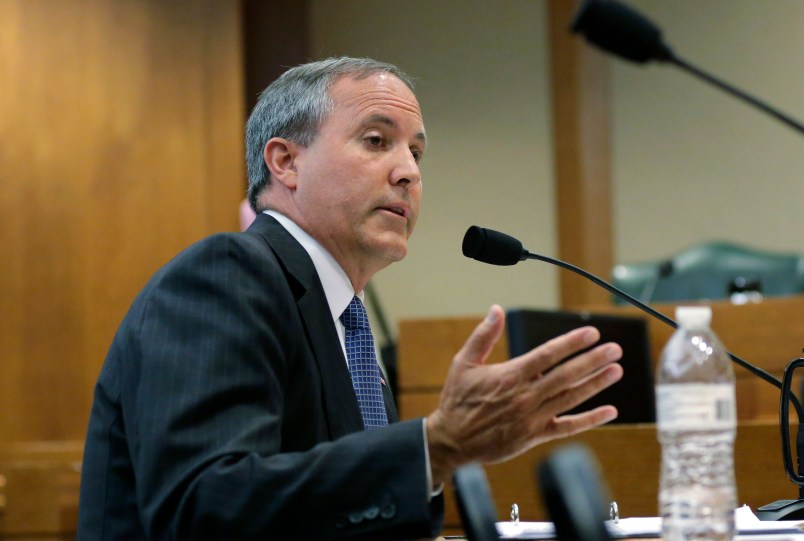As Texas Attorney General Ken Paxton was in the midst of a public legal battle to keep mail voting limited in his state during the pandemic, he was also privately asking the Treasury Department to restrict the use of federal COVID-19 relief funding to promote vote-by-mail, according to a letter released Tuesday.
The letter, obtained by the watchdog group Citizens for Responsibility and Ethics in Washington, was sent by Paxton to Treasury Secretary Steven Mnuchin in May, several weeks after Congress passed the CARES Act, which provided state and local governments with funding for responding to the coronavirus.
Harris County — home to Houston and the most populous county in Texas — had sought to use CARES Act funding to pay for a $12 million effort to expand vote by mail, Paxton’s letter to Mnuchin noted.
He requested the the Treasury Department “scrutinize” Harris County’s plans for the federal funding, which Paxton claimed could be used in violation of state law. Paxton also asked the Treasury Department to “seek return of any amounts improperly spent on efforts to promote illegal mail-in voting.”
The letter was first reported by the Houston Chronicle.
Unlike other states that relaxed excuse requirements for absentee voting during the pandemic, Texas state officials fought aggressively in court efforts to open up mail in voting in the Lone Star state, with Paxton claiming that the disability excuse that the state offers for absentee voting did not cover health concerns about contracting COVID-19. Paxton also went to court to successfully challenge Harris County’s plans to proactively send all its registered voters mail ballot applications.
The county approved of the proposal to allocate $12 million to mail-in voting in order to be prepared for a scenario in which Democrats won in their lawsuits seeking to expand access to the option. The Democrats were successful in some lower court proceedings, but both the Texas Supreme Court and the U.S. Supreme Court sided with Texas’ more restrictive interpretation of the rules.
Read the letter below:



